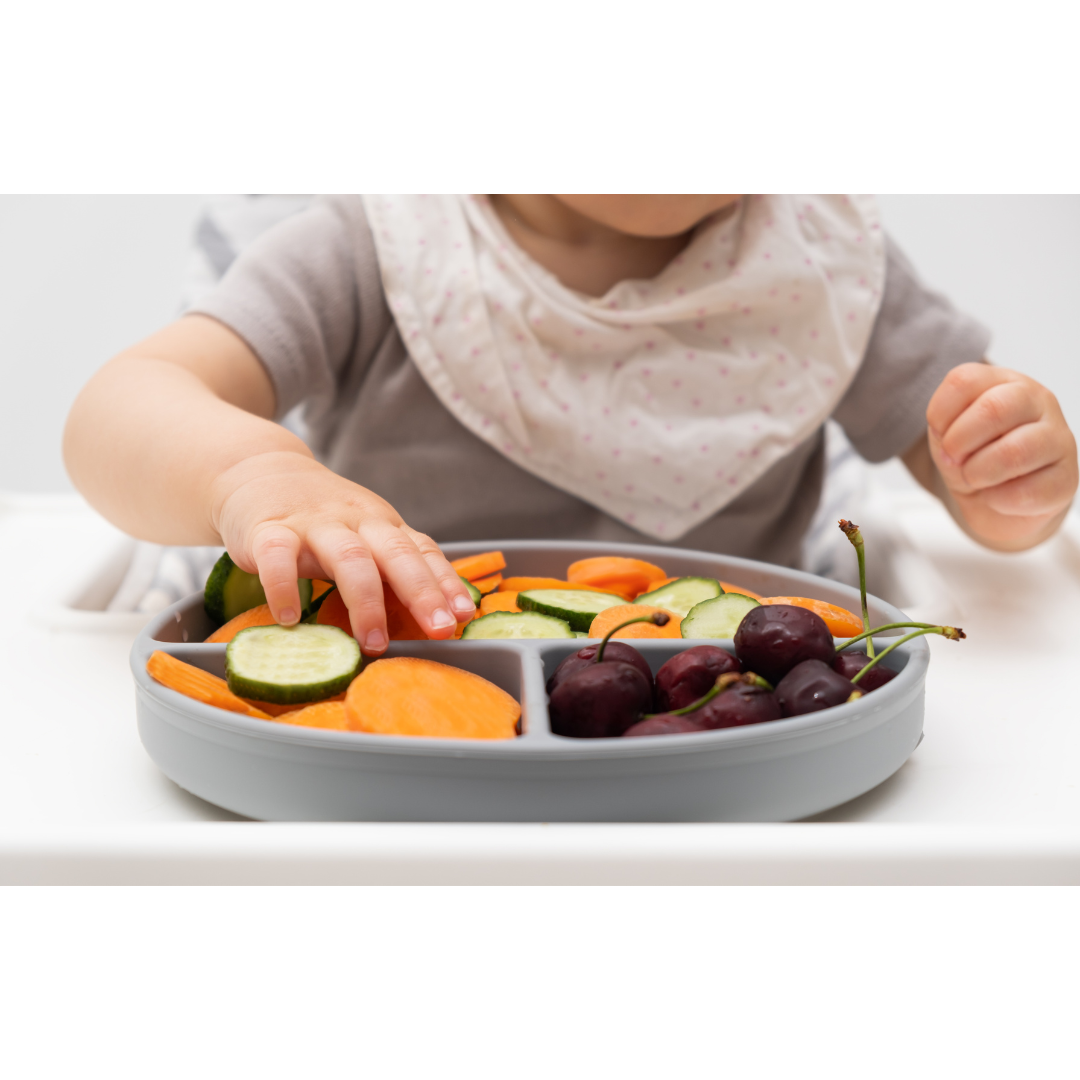
The top five most common weaning questions answered
Starting solids is uncharted territory for most parents, and it is completely normal to have a long list of questions before introducing solids to your baby and during the process. For many parents, common queries and concerns arise when starting solids, so this blog has compiled the top five most frequently asked questions about this topic, expertly answered by Lucy Upton, a specialist Paediatric Dietitian.
- When can I start offering my baby solid foods?
In the UK, it’s recommended that babies start solids (weaning) at around 6 months of age, but not before 17 weeks (about 4 months of age). The reality is that most babies will begin this process within this timeframe, which should be aligned with when they reach certain key developmental milestones (these may vary slightly for some babies):
- Your baby is able to hold their head upright and sit unsupported for a short period.
- Your baby can look at something, pick it up, and bring it to their mouth.
- Your baby has a reduced tongue thrust reflex, meaning they can swallow some food instead of just pushing it out.
2. What’s the best food to start weaning with?
What are the best foods to start weaning with, is probably a question I’m asked weekly as a Dietitian for children. The reality is that there is no single ‘perfect’ option, and there is a wide variety of foods you can offer safely to your baby at the start of weaning. In the UK, offering vegetables at the start of weaning is often a preferred approach, especially starting with bitter-tasting or green vegetables. Some research suggests that introducing these foods early can support ongoing and later acceptance of vegetables for children. Still, I always remind parents that it’s probably much more about continuing to offer these foods. Options that many parents choose to start with include green vegetables, root vegetables, fruit, grains or even protein-rich foods like eggs. The only rule really is to avoid foods that should never be offered to weaning babies, and from a health and experience perspective, I would encourage you to focus on plenty of variety during weaning (which is great for children’s developing gut microbiome, immune system and brain too)
3. When can I introduce cow’s milk to my baby?
Cow’s milk can be introduced to your baby’s food during weaning, but it should not be offered as a drink until at least 12 months of age. You can use whole (full-fat) cow’s milk in your baby’s cereal and oats to cook, make white sauce, or include it in recipes. Whole cow’s milk is a great source of fat, calcium and iodine for your baby. It’s worth remembering that cow’s milk is a common food allergen, so introduce gradually, especially for exclusively breastfed babies who won’t have had direct and regular exposure to the whole cow’s milk proteins.
4. How do I know my baby is getting enough food when starting solids?
It is common for parents to worry about the portions their baby is or should be eating during weaning; however, the reality is that this will vary from meal to meal and baby to baby. When babies are first introduced to solids, they will likely only take very small amounts. Eating is a skill that is learnt, not just innate, so as your baby’s experience and confidence with food grows, they will likely start to eat more. What’s important to remember about babies and children is that they have a fantastic ability to recognise their own hunger and fullness cues, meaning they will also be the best judge of how much they want to eat at a mealtime. Try to avoid persuasion or pressure around eating, as this can often make mealtimes more challenging for you and your baby.
5. How do I avoid my baby choking during weaning?
- Weaning can feel like a scary time, and many parents worry about choking, so you’re not alone. The key ways to keep your baby safe when starting solids include:
- Always sitting with them when they are eating; choking is often silent.
- Ensure your baby is stable and secure upright – do not recline babies to feed them.
- Avoid any foods that pose a choking risk – these tend to be firm and round, the type of size that could block your baby’s airway, e.g., whole nuts, whole grapes, cherry tomatoes, large blueberries, or chunks of apple and carrot. Many foods can be adapted to be offered safely to your baby, e.g., by quartering grapes lengthwise, milling nuts, or grating raw carrot or apple.
- Remember, your baby’s gag reflex is there to protect them; gagging is a normal part of the weaning process and occurs for all babies.
- Avoid intervening when your baby is gagging; let them work this out themselves.
- Know how to recognise choking; often babies will be silent, look panicked, lose colour in their face or lips, or turn blue or ashen. If your baby is choking, they need a choking first aid sequence and immediate urgent (999) support.
